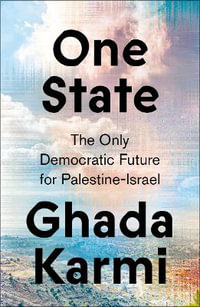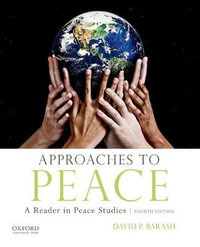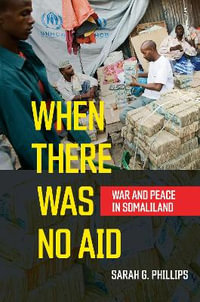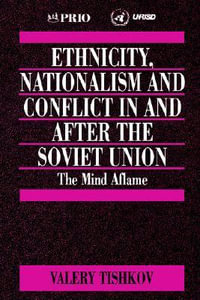Winner of the 2022 BISA L.H.M. Ling Outstanding First Book Prize
From the BISA L.H.M. Ling Prize judging panel:
'Sophie has produced an impressive piece of research on peace processes and the proscription of "terrorists". Her notion of a 'linguistic ceasefire' makes an original contribution to theorising peace processes by moving beyond Zartman's classic concept of the 'hurting stalemate' as the most significant turning point in conflict dynamics. Haspeslagh shows that the hurting stalemate in and of itself is not enough: it requires the additional move of a change in discursive practices of the parties to the conflict, the conscious 'de-vilification' of one another. The book is based on exceptionally thorough fieldwork in Colombia and Havana, involving carefully nurtured direct access to the FARC well before they opened up to the outside world. Drawing on her practitioner experience in conflict resolution, Haspeslagh makes an outstanding contribution at the level of ideas based upon rock solid empirical research.'
'This book will enter into the top row of inside stories on the Colombian FARC negotiations. Her sources were deep in the FARC, where no one goes, as well as the state. It will enter the academic literature on International Relations concepts, notably the matter of ripeness, to confirm how the process works in reality and how reality can add refinements to the concept, and how the strategy of proscription affects behaviour and outcomes. An exciting story and a penetrating analysis.'
I. William Zartman, Jacob Blaustein Distinguished Professor, Johns Hopkins University
'Not talking to "terrorists" is fine - until you have to. This is a hard lesson learned by many governments who have had to negotiate with armed actors they have spent years demonising. Sophie Hapeslagh's excellent book gets to the heart of the matter and provides guidance to governments on how to get around this problem. Her original notion of a "linguistic ceasefire" offers a way to move conflicts from the blame game to negotiations. Based on extensive fieldwork, and detailed knowledge of the Colombian peace process, she shows how the conflict temperature can be lowered to allow productive negotiations to take place. The book is highly recommended.'
Roger Mac Ginty, Durham University
'This important and detailed study is vital reading for the evidence and arguments to explore the impact the labelling of armed actors as 'terrorists' has had on the possibilities for peace. International proscription, used by national actors to support their own political and armed goals, holds the possibility of peace back in ways explored in great detail through the Colombian case study. A really important read for social scientists and peace practitioners, based on extensive original material. It calls for a 'linguistic ceasefire' as a vital step towards peace negotiations, due to the impact the label has on the armed actors.'
Jenny Pearce, Latin America and Caribbean Centre, London School of Economics
'The significance of this deeply researched work extends beyond the Colombia negotiations with the FARC. Negotiations in the age of proscription is a key challenge of modern conflict. Millions of people now live in seemingly endless wars where governments are fighting militant groups deemed too extreme for dialogue. The path to peace - already complex and difficult - now has to make its way round legal obstacles that, while well-intentioned, do more to prolong wars than they do to crush terror. Haspeslagh does an excellent and nuanced job of showing the damage that can result. A compelling argument for a more rational approach to proscription in the context of peace talks, and essential reading as we approach the 20th anniversary of 9/11.'
Jonathan Powell, CEO and Founder, Inter Mediate
'Sophie Haspeslagh's new book, Proscribing peace, is greatly to be welcomed. The topic of
























